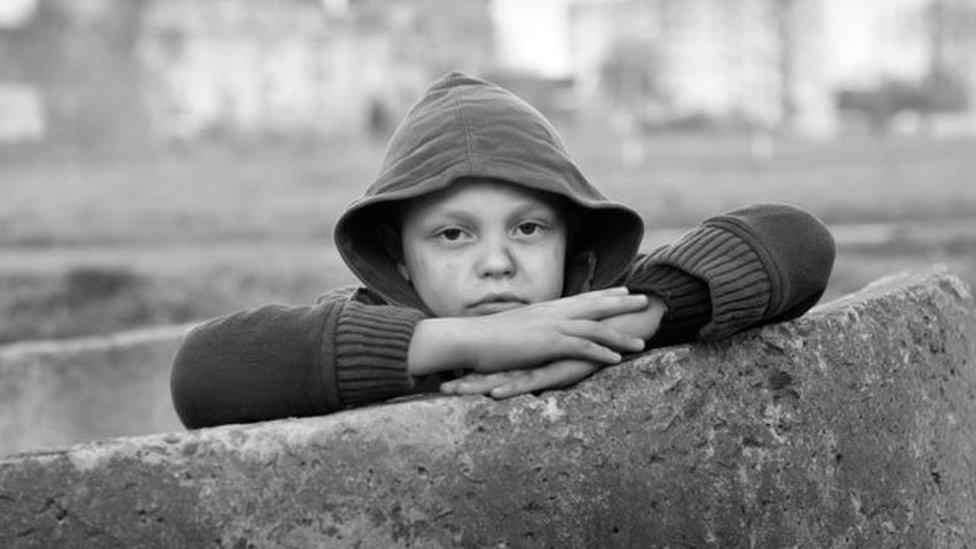Coronavirus: Wales' poorest areas 'suffering most'
- Published
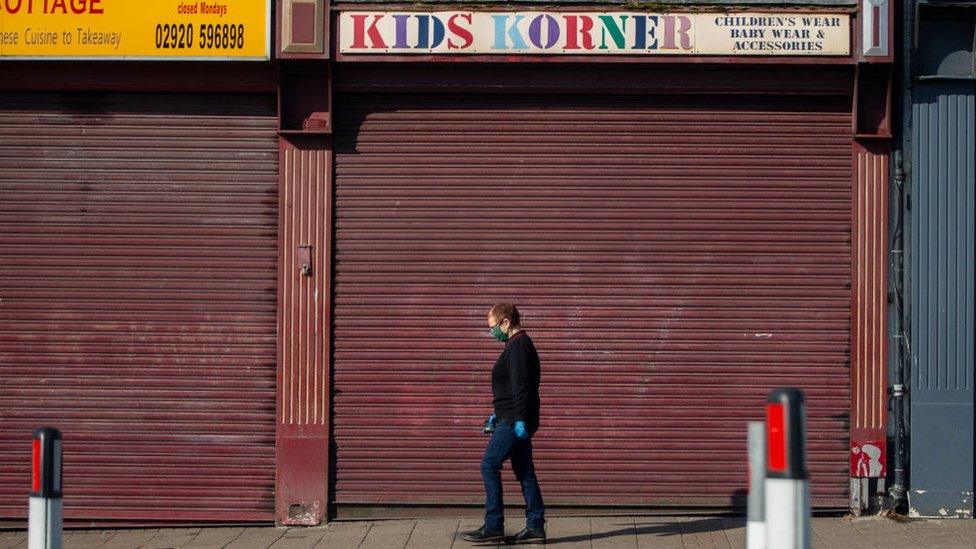
Many of Wales' poorest areas have been hardest hit by the pandemic
The coronavirus death rate continues to disproportionately affect the most deprived areas in Wales, analysis of the latest figures has shown.
The five local authorities with the highest mortality rate are also among those with the greatest proportion of deprivation in Wales.
Youth worker Charlotte McCarthy said staying home was a "luxury".
"If you're able to work from home, you're fortunate to have the means to do that," she added.
Charlotte works in Cardiff with a group called Action in Caerau and Ely (Ace).
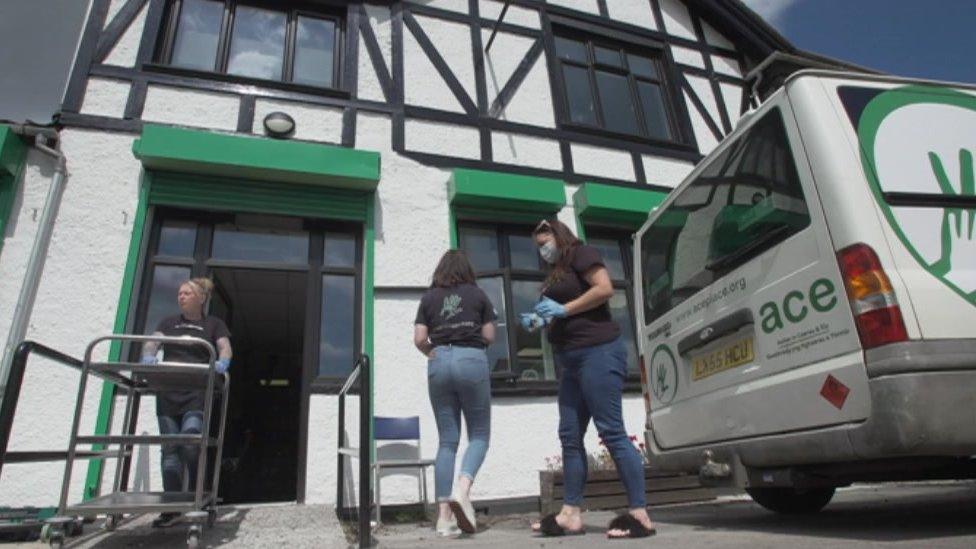
Ace is delivering food each day to 50 homes during the pandemic
A recent breakdown by the Office for National Statistics, external suggested Caerau West alone had seen 13 coronavirus-related deaths.
Before the pandemic, Ace was supporting working families who needed extra support, now it regularly distributes three bags each to about 50 homes.
"The people we work with were balancing multiple jobs, on zero-hour contracts, low pay and just trying to make ends meet," she said.
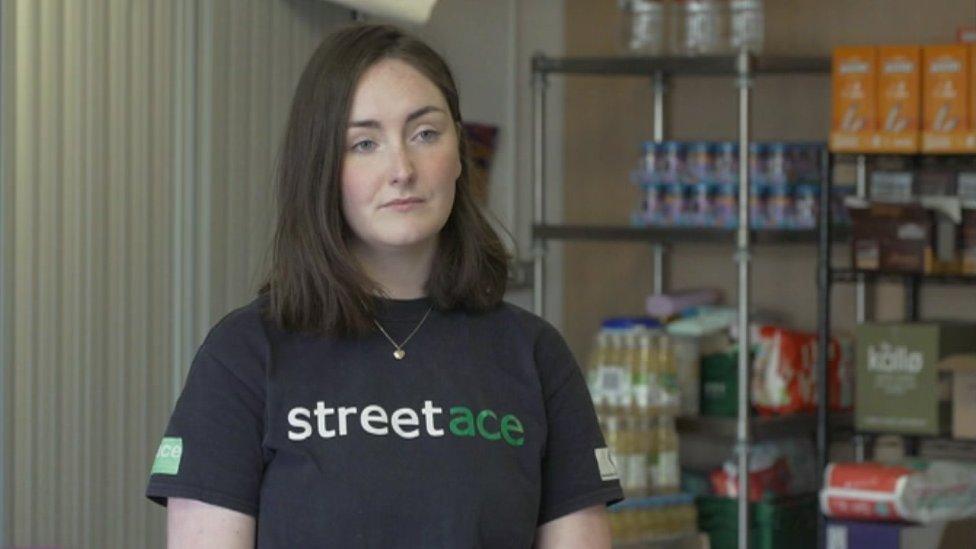
Charlotte said some people face a choice between going to work and risking their health
Now, she explains, many have to weigh up whether to put themselves at risk to pay the bills, or cope with less money to protect their health.
"If you're coming into contact with people, you're at risk and if you've got to do 30 or 40 hours a week to get that sort of income, then 30 or 40 hours a week you're at risk.
"It looks very different to people in other areas who have got computers and internet at home.
"Within our area, I know that there have been quite high deaths through the coronavirus [but also] male suicides as well. It's been a shock and I think that's down to financial issues and people struggling."
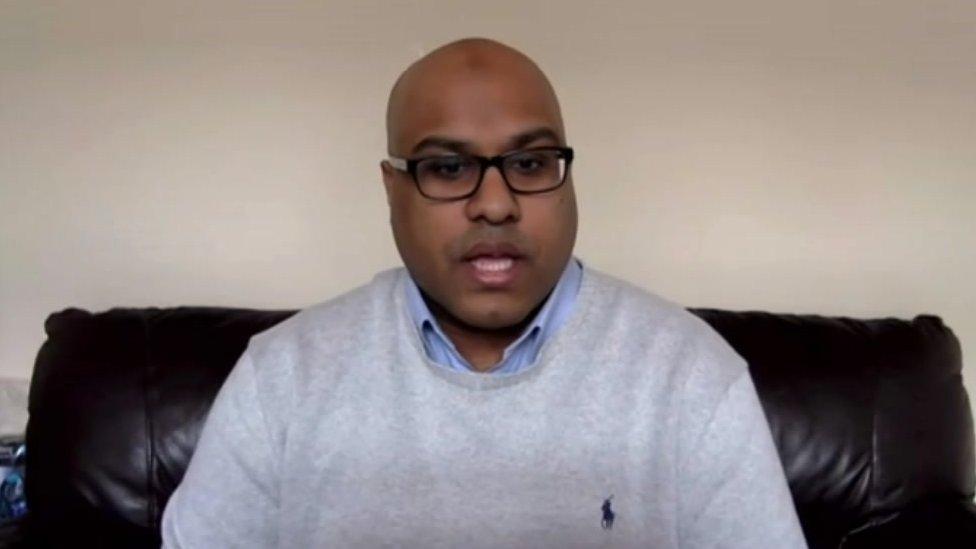
"Sometimes people don't know where to get help," said councillor Majid Rahman
Newport councillor Majid Rahman represents the Victoria ward - which saw 11 coronavirus deaths in the latest figures.
The densely populated area is a mix of middle-class families, single professionals and many on low incomes too, he said.
He is acutely aware of the loss many have gone through - including his brother's father-in-law.
He said there were a variety of factors, but poverty, housing and employment were hard to ignore.
"People are on low wages, in the gig economy, or taxi drivers. They don't have access to big companies that can give them that extra support or help financially and sometimes they don't know where to get help from the government."
He has also been exploring why the black, Asian and ethnic minority communities have been particularly hard hit.
"Those people have come into contact with someone with Covid-19, they go back home to a large family - because most Asian communities live in large household units - and may then pass it on to the rest of the family," he said.
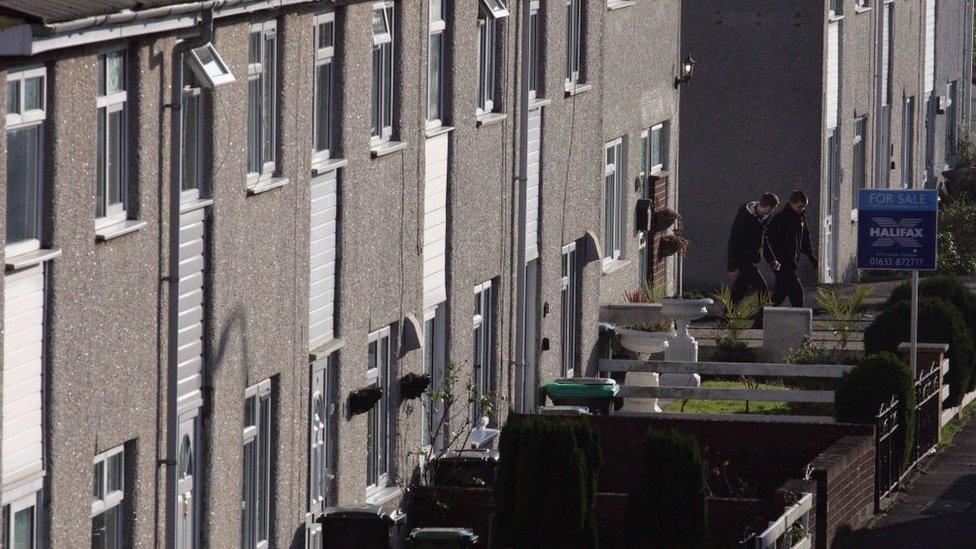
Many of Wales' most deprived areas have seen the highest death rates from coronavirus

The death rate, per 100,000 population, according to the latest figures from PHW (as of 12 May)
Rhondda Cynon Taff 83.7
Blaenau Gwent 80.3
Newport 78.2
Merthyr Tydfil 78
Cardiff 72
Local authorities with the highest proportion of areas in the most deprived 10% in Wales
Newport 24.2
Merthyr 22.2
Cardiff 18.2
Rhondda Cynon Taff 17.5
Neath Port Talbot 15.4
Blaenau Gwent 12.8

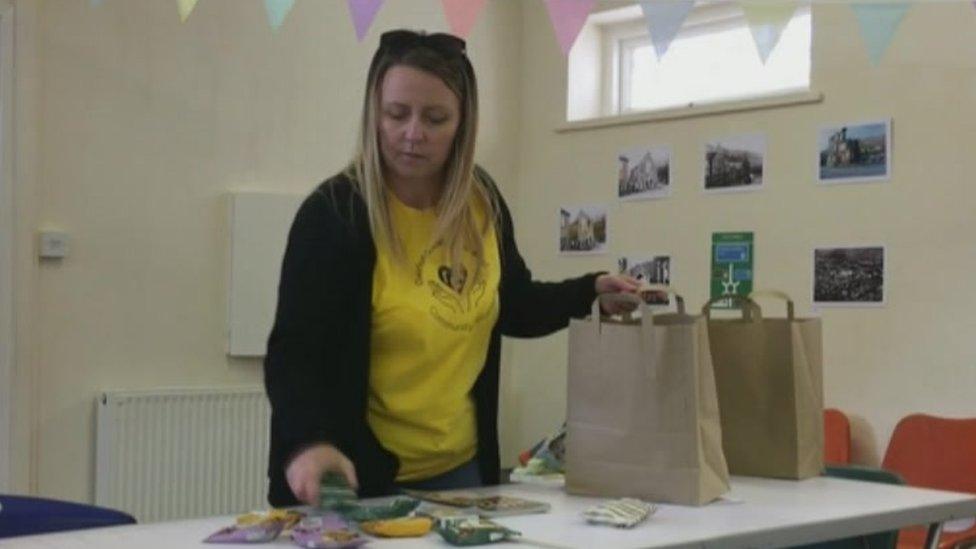
Julie said the Rhondda's strength is the people who live there
Julie Edwards works for a community group in Ynyshir and Wattstown in Rhondda Cynon Taff.
They have delivered more than 500 packs to people in the area - including treats, books and gifts for children.
Recent ONS analysis showed 15 confirmed deaths locally, though deaths at care homes may affect the local picture.
While Rhondda Cynon Taff includes one of the highest number of most deprived wards, Julie says its real strength is its people.
"A lot of small villages in the valleys communities have become more fractured over the years and I think something like this - as tragic as it is - has actually helped them to come back together," she said.
"People are looking after their neighbours, and that's probably something we haven't seen for quite some time."

A SIMPLE GUIDE: How do I protect myself?
AVOIDING CONTACT: The rules on self-isolation and exercise
HOPE AND LOSS: Your coronavirus stories

- Published28 May 2024

- Published12 May 2020

- Published13 May 2020
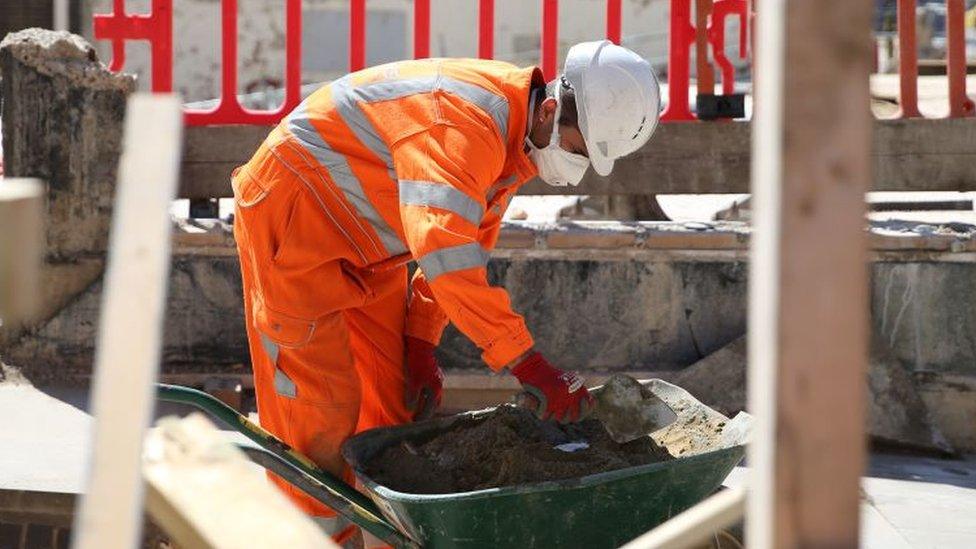
- Published19 June 2020
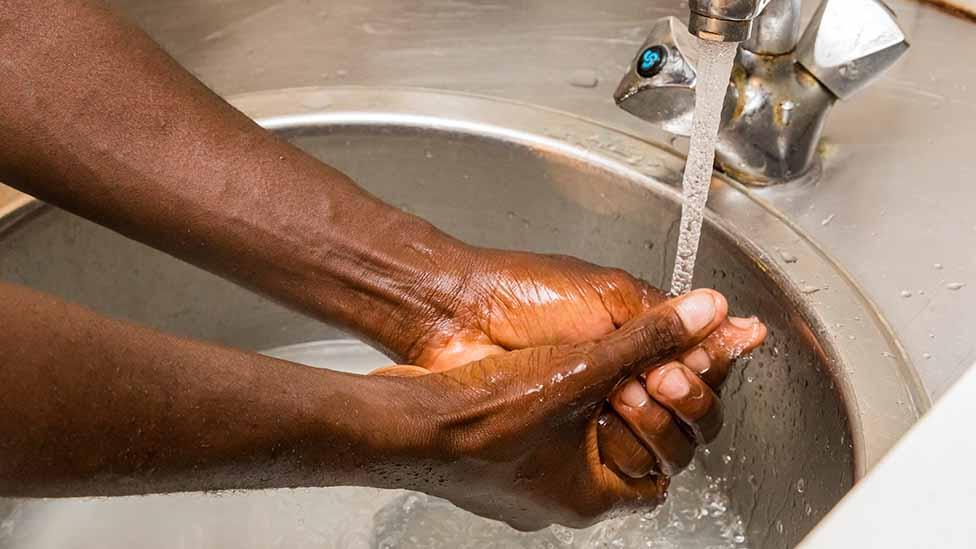
- Published15 March 2020
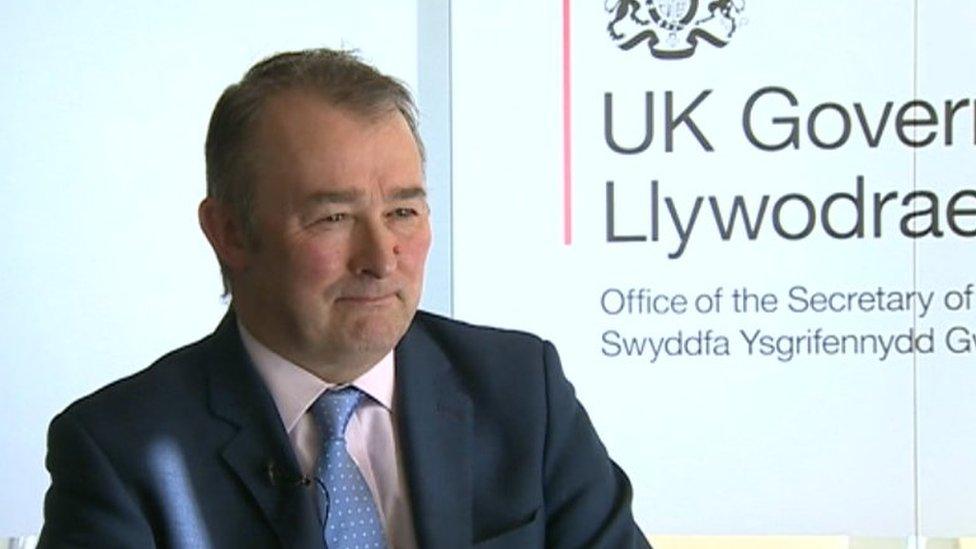
- Published7 February 2020
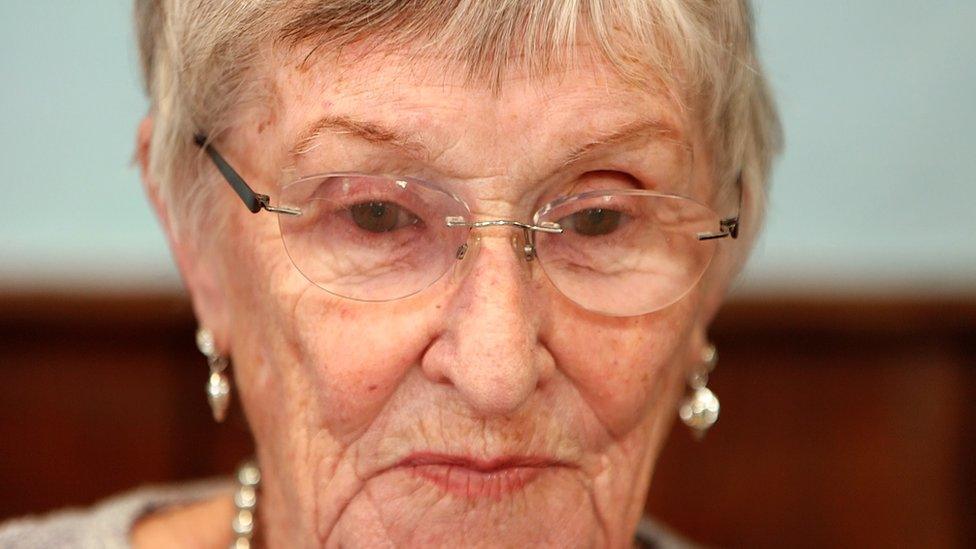
- Published15 May 2019
